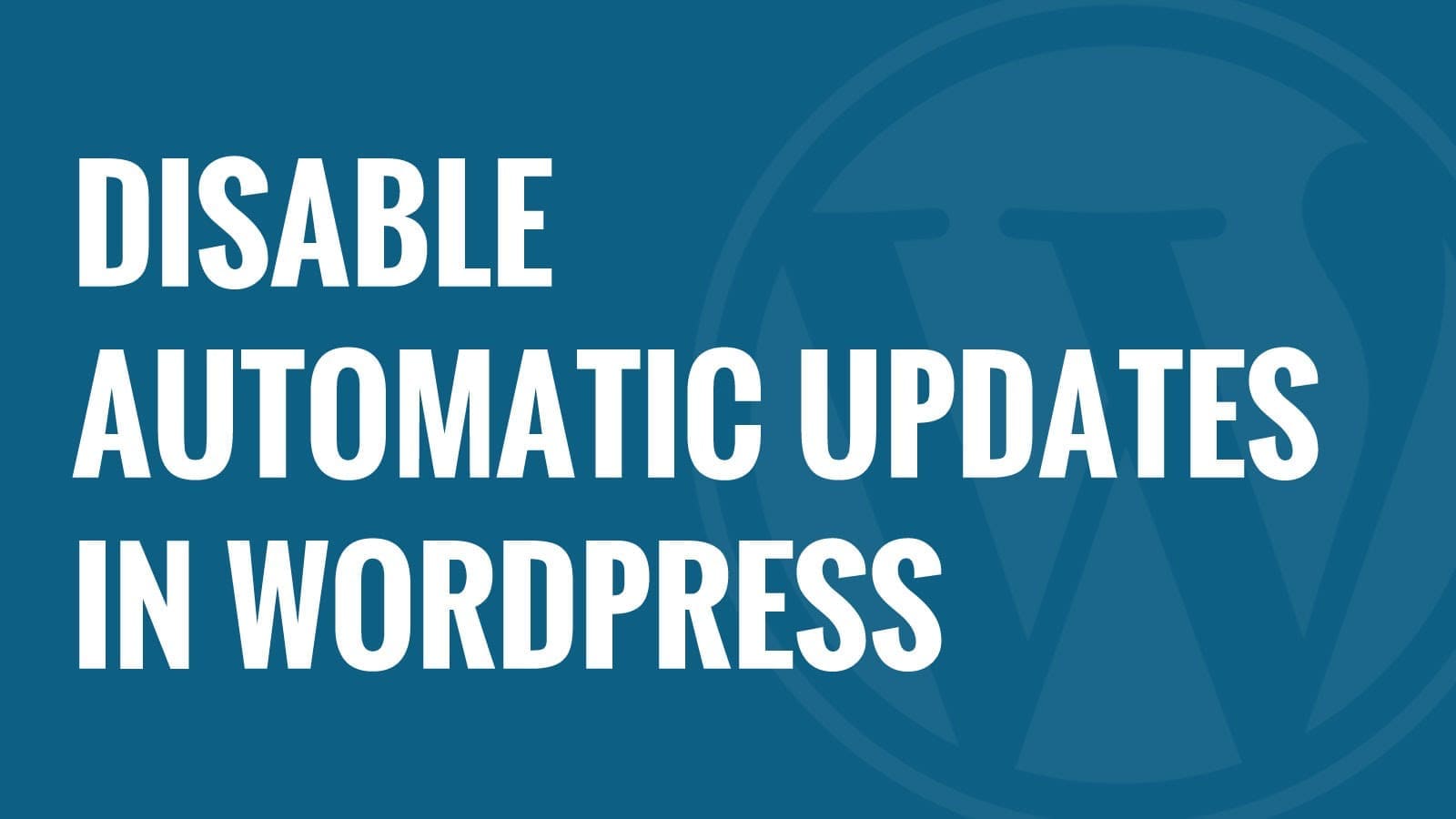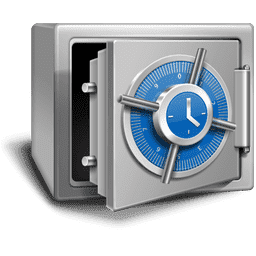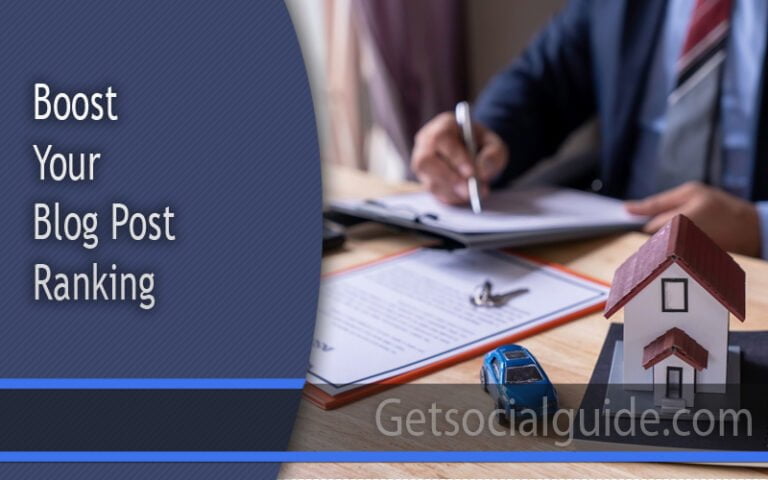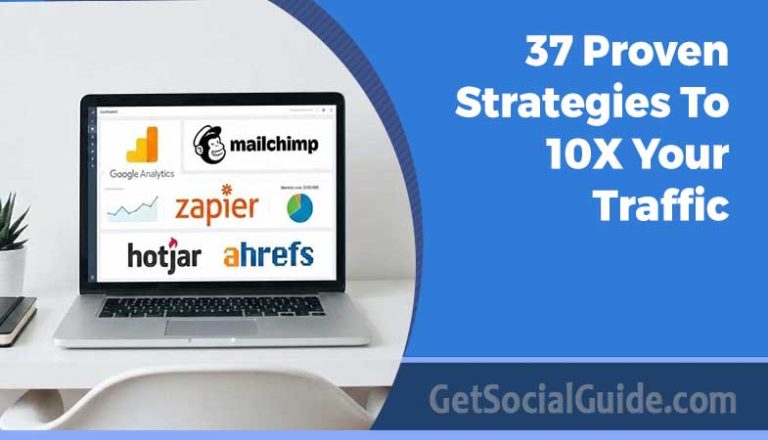Top 5 WordPress Tips and Tricks That You Can Try
If you’re joining the growing WordPress family, check out our list of tips for WordPress users. It will make your life easier and help you to improve your website.
WordPress is used to create more than 500 websites every single day. 14.7 percent of the top 100 websites worldwide are powered by this platform. WordPress publishes 17 new posts on average per second. WordPress is looked up on Google more than 37 million times every month. A robust CMS is WordPress. The platform is used by more than 19.5 million websites worldwide.
WordPress manages 30% of the Internet. It is not surprising – WordPress is a robust platform that allows you to create your website, customize it, and add all the necessary features. Bloggers, Businesses, Web Marketers: WordPress welcomes everyone.
The WordPress family is waiting, but first, you need to build and publish your site. If you are immersed in the world of hosting, search engine optimization, coding, plugins, and the rest, you may need helpful tips.
We can help here. We use our expertise, experts, and excellent knowledge of WordPress. Here are our 5 WordPress tips and tricks for everyone.
Find the Right Web Hosting Plan
WordPress is an open-source CMS (Content Management System). In simple terms, it’s a website building and managing tool. WordPress allows you to create a personal blog, business website, storefront, or something in between.
However, the platform itself does not host any websites. It is a common misconception I find among potential website owners.
There are many different options for web hosting. Now that you have found the best hosting provider, you also need to determine the hosting you need. Shared hosting, Windows hosting, VPS hosting, dedicated servers, and cloud hosting are the most popular options.
Choosing the right plan and host is critical from the start. It is essential to find a list that gives you enough resources to meet your traffic needs.
Choosing the wrong hosting plan can lead to slower downloads, crashes, and downtime. It can also be a problem to change hosts later.
Pick An SEO-Friendly Theme
One of the attractions of WordPress is the abundance of high quality paid website themes. It can be not easy to choose from the many attractive and functional themes. However, there is one distinguishing feature to consider when looking for possible themes on your WordPress website.
It is SEO optimized. If you browse WordPress themes, you can see that many of the themes are labelled “SEO friendly”.
Make sure the topic you selected includes this tag and the following options:
Responsive Design
One of the hallmarks of an SEO focused topic is responsiveness (just a proud way to say a website looks great on all devices). It is a must-have in today’s era of web browsing. When visitors browse your website from desktops, mobile phones, and tablets, the theme of your website must be adapted to each device.
Lightweight-ness
Another essential attribute of a topic that affects search engine optimization is the simplicity of the subject. Since page load speed is an important ranking factor, your site should load as quickly as possible.
One of the keys to lightning-fast page loading is a lightweight web theme. If you don’t care about this feature and don’t differentiate it, you can install a slow theme first. Some topics have preinstalled plugins that can significantly affect page load speeds.
Put Safety First
Security should be a top priority when running your WordPress site. We mentioned earlier that your website would be updated to prevent malicious errors or hacking, but that doesn’t stop there.
Here are some specific steps you can take to make sure your website is secure and airtight:
Get Secure Sockets Layer (SSL) Certificate
SSL certificates encrypt information transmitted through your website, including payment details and logins. Visitors are warned about the use of insecure websites, and Google avoids sites that do not have SSL.
Right hosting providers, such as Bluehost, include free SSL security in their plans. If not, you have to do it yourself. You can get Free SSL Certificate if you are engaged somehow with NGOs as the website requires strong website security offers 256-bit encryption.
There is also another option called paid SSL certificate that requires timely renewal but comes with many features that you may not get with free SSL. You can opt for an SSL cert as per your need like a security certificate for coders, multi-domain wildcard or any standard SSL certificate. You can find reliable still cheap SSL providers from which you can get the best offer.
Backup Your Site Regularly
If something goes wrong with your WordPress site, the backups are messed up – whether your site has been hacked or you accidentally deleted half of your code; you can be sure that you’re backing up your site.
Right hosting providers will support your website for free as part of their hosting plan, but trusting them 100% is not always best. An efficient and easy way to back up your site is to choose a backup plugin to back up and manage your site.
Install a Security Plugin
It’s best always to play it safe – these plugins can protect your site with firewalls, malware scanners, and more. Just choose a trusted security plugin and install it on your website.
Limit Your Plugins
Plugins add functions to your website. If your theme doesn’t have built-in functionality, you’ll need various plugins like WooCommerce side cart to add functionality such as contact forms, newsletters, or live chats to your website. However, too many plugins can slow down your site and even compromise the security of your site.
Install only the plugins that you need, and that will benefit your users and your website. Avoid the temptation to choose as many interesting plugins as you can, only go for the best plugins such as like WooCommerce side cart for your eCommerce store. Additional code plugins can load and slow down your site.
Because anyone can create add-ons, the selection is complete, and the quality levels vary. Additives are officially controlled for safety but not for quality. So always read user reviews as well.
Use Google Analytics
It is impossible to know how well your website is performing if you can’t measure its performance. WordPress alone won’t give you enough information.
However, by installing the Google Analytics plugin, you will learn more about the behaviour of website visitors on your pages.
The best part about using the Google Analytics plugin is that you can view all of your data right in your WordPress admin area. The best way to access this information is to switch between many websites and platforms.
Use A Real Favicon
In case you weren’t aware, a favicon is a tiny icon that appears in your browser’s tab whenever you visit a website. Most WordPress themes should replace their default favicon as soon as possible. By including your logo in as many locations as you can, you will strengthen your brand. Additionally, it appears much more expert. Check the instructions that come with your theme because every theme has a different procedure for changing the favicon. A 3232 pixel PNG or ICO file is the best choice.
Use a Custom Homepage
WordPress by default displays your most recent content on your website’s home page. You can alter it and make any page the home page of your website. You must first build a new page in WordPress and give it the name “home.” As you will use this page to display your blog articles, let’s call the next page you need to make blog. Now navigate to the Settings » Reading page in your WordPress admin and select “A static page” under the “Front page displays” option. The pages you just generated will then be available for you to choose as your blog and home pages.
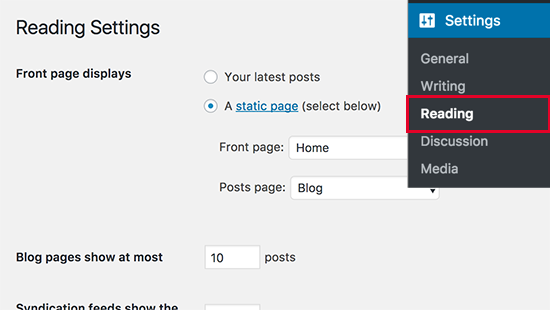
Additionally, you can design a unique homepage template to utilise as your home page. Simply use a simple text editor to create a new file on your computer, then paste this code at the start of it.
| 1 | <?php /* Template Name: Custom Homepage */ ?> |
On your desktop, save this file as custom-homepage.php. The next step is to use an FTP software to connect to your website, then navigate to the /wp-content/themes/your-current-theme/ folder. The file you previously prepared should now be uploaded to your theme folder. Edit your home page by going back to the WordPress administration area. In the page characteristics metabox, you can choose your own homepage template.
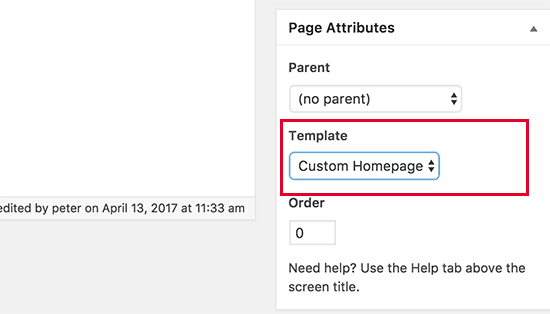 See our tutorial on how to create a custom page template in WordPress for more information. This page will now be entirely blank and display nothing at all. To create your own web layout, use WordPress template tags and customised HTML/CSS. A page builder plugin can also be used to quickly create one using drag and drop tools.
See our tutorial on how to create a custom page template in WordPress for more information. This page will now be entirely blank and display nothing at all. To create your own web layout, use WordPress template tags and customised HTML/CSS. A page builder plugin can also be used to quickly create one using drag and drop tools.
Install a plugin for SEO
Using a WordPress SEO plugin is something you should do in addition to using Google Analytics. Although there are countless options available, I personally suggest Yoast SEO.
Your WordPress site won’t receive much organic traffic if you don’t have a sound SEO plan. This is essential for surviving in the modern world. You cannot simply trust that the quality of your content will draw visitors to your website.
No matter the nature of your website or the sector you operate in, SEO must be given top priority. When you want to optimise your site for SEO, a plugin like this one makes things simpler for you. It will examine your text and keywords to make sure you’re proceeding properly. You can manage your sitemaps and robots.txt files with the aid of Yoast, which also aids in the technical aspects of SEO.
Don’t use too many plugins
You should minimise your use of plugins, even though I realise that it may seem contrary to my last two suggestions. As with certain other plugins, Google Analytics and SEO plugins are unquestionably required to add functionality to your website. There are outstanding plugins for the following:
- Caching
- Forms
- Directories
- Bookings
- Memberships
- Popups
- Backups
- Security
Having said that, you don’t require a plugin for each category. You don’t need a popup plugin if you won’t actually install popups to your website. Installing a reservations plugin is not advised unless your company would benefit from it. Too many WordPress plugins installed can ultimately slow down your website.
Your website may become more bloated as a result of the additional code that plugins require. A website with additional plugins may or may not be better or more useful. Just be careful not to overdo it when installing them. Only install plugins that you will truly use and require.
Compress images
Another way you can ensure that your website loads slowly is through the use of images just like it is the case with the use of many plugins. Nevertheless, it does not mean that there are not a few photos that you are to avoid using in your material. However, let me encourage you to pepper your website with as many photos as you can. You can exploit them in your normal use of landing pages, product pages and descriptions and even in your blog posts.
Actually, I think that there are few scenarios in which a picture should not be placed on your Web site. But such media files are very large in size and this leads to slow loading of the files. Because of this, every picture that is to be published should undergo compression.
Keep track of unfinished drafts
Nobody enjoys starting a lengthy post only to have their browser crash or have a phone call erase all they’ve written. The simplest method to prevent this is to keep draughts that aren’t finished. You can store your work on WordPress.com and return to it at a later time using the handy draught tool.
All you have to do is go to your Posts panel, add anything to the ‘Status’ column like “Unfinished Draft,” then hit Save as Draft. WordPress will alert you if any changes have not yet been saved before completely deleting them. To make it easier to find them later, you can also use tags instead of status names.
Keep Your Content Clutter Free
With all the glitzy widgets, banners, adverts, and other elements you might include on your website, it’s simple to overdo it. But while it might be enjoyable for you, your readers won’t find it to be so. A cluttered website might draw attention away from the content or, worse yet, make visitors reluctant to stay on the page at all. Check the widgets in your footer and sidebar to see if they are adding anything to the page; generally, less is more!
Edit Your WordPress Permalinks
While permalinks are the simple permanent connections, one of its examples includes the URL of the website or the title of every individual blog. Whenever a new post is posted in WordPress, permanent links are automatically generated, but the settings it uses are unattractive and not very Search Engine Optimization friendly. That means if the parameters for the creation of the permalink remain untouched, then the date will be in the end of the link.
This is not the best strategy especially when it comes to matters of SEO. Just go to the dashboard, select settings from the dropdown list and then click on permalinks if you wish to change your permalink settings. Actually, there are a few choices for your new permalink structure but here the Post Name option is the most suitable for SEO. At the bottom of a page, always ensure that you tap: ‘save changes’ to ensure that the changes made are saved.
Get an SSL Certificate
Obtaining an SSL certificate is another approach to make your WordPress website more trustworthy. Have you ever been browsing a page when you noticed a tiny green padlock next to the URL? If so, an SSL certificate is present on this website. A layer of coding known as SSL (Secure Sockets Layer) encrypts the communication between browsers and websites, protecting the user. Your site’s URL will also change from http.yoursite.com to https.yoursite.com if you have an SSL certificate for it. A secure connection is shown to consumers via an SSL certificate, which can boost user confidence, increase page views, and lower bounce rates.
Optimize Your Site Speed
While a page loading as quickly as possible is generally preferable, this is not always the case. For instance, quick loading might occasionally ruin the user experience. Something that loads quickly yet has a messy appearance can backfire. The same is true with irrelevant search results. On the other side, individuals may turn away if they have to wait too long for something.
There is usually a good balance for web pages. Use the WP Rocket WordPress caching plugin to speed up various files and reduce loading times to assist maintain this happy medium. You want your material to load as soon as possible without sacrificing its quality. Optimizing the load speed is one of the best WordPress tips and tricks, and by using it, you’ll receive much better results.
Disable automatic updates
WordPress provides the option to automatically update the platform to newer versions. Most users will really benefit from this. When updating to new versions, some themes, plugins, or platform configurations, however, frequently perform poorly, have errors, or merely vanish. Turn off automatic updates to prevent these situations. Therefore, you can update your theme or plugins to work with the new version without being concerned that they won’t work properly.
Check the authenticity of your theme
Do you employ a real theme? By this, I mean that if you get it for free, did you check to see whether it has faulty coding or security flaws? same holds true if you utilise a premium theme. It is crucial that the theme has not been altered, illegally obtained, or improperly designed, as these flaws could open doors for hackers and potential security attacks. Download the Theme Authenticity Checker plugin to do this review, which will instantly inform you of how authentic and well-prepared your theme is.
Add videos to your Articles
Although the text is the main format for the Web and blogging, there are other forms that are frequently utilised and offer a fresh, new approach to engage with readers. The video is one of the most useful additions to the publication of textual posts. Since version 4.0, adding videos to your entries has been much easier. Take the following actions: the video’s URL. Into the WordPress editor, paste the URL Ready! The video will immediately start playing. No codes or plugins are needed. We adore WordPress for this reason.
Create a backup easily
Making a backup of your website is crucial since it helps to shield WordPress against potential threats. You never know when a difficulty will arise that jeopardises the platform’s integrity and could cause significant issues. No matter what occurs, you always have the option to delete everything and recover access to the pre-installed content, settings, themes, and plugins if you have an updated backup. How can a backup be made? You can utilise a few plugins, including the following:
- iThemes Security
- BackWPUp
- BackupBuddy
These are but a few of the choices. Indeed, there are a lot more. After installing the plugin, adhere to the backup configurations (every day, every week, every month, etc.)
Have you ever gone to a website in search of information only to leave after a few seconds because you couldn’t locate it? Another obvious issue that is frequently ignored is navigation. Poor user experience and negative effects on important metrics like bounce rate, time on site, and SEO are the results of difficult site navigation. Your site’s performance will improve overall if the navigation is improved. You’ll satisfy their needs, which will make them happier and cause them to progress up the sales funnel. Additionally, it will improve the way search engines index your website.
Lazy Load images
Simply put, lazy loading refers to the practise of delaying the loading of images on your sites until the user scrolls to that area. As a result, your website will load much faster as the browser won’t need to download the photos in order to display the content. Installing Lazy Load by WP Rocket is all that is required to make this functionality available. After you enable it, the plugin immediately starts working. Your website will load almost instantly if you use compressed JPEG images along with lazy loading.
Minify CSS and JavaScript Files
For the various features it offers, WordPress by default contains a tonne of extra CSS stylesheets. All of this unneeded code increases the file size of your website, which slows it down. Minifying your CSS and JS files is a certain approach to increase your website’s loading performance. The only thing you need to do to do this is installing the free plugin WP Super Minify. The plugin uses the Minify PHP Framework to combine, minify, and cache inline JavaScript and CSS files to accelerate page loading, according to the developer.
Install a caching plugin
WordPress is a fantastic platform that gives you the freedom to create any kind of website you can imagine, but it also has some restrictions. Speed is the biggest. WordPress was not created with performance in mind from the beginning, and even on a good hosting plan, it can be slow if it isn’t properly optimised. The change can be jarring using a caching plugin like W3 Total Cache (it’s free)!
Tips for WordPress Marketing
You have a set amount of time each day as a human being to devote to content creation. Because it is a scarce resource, you must use it carefully. Insufficient time is available for outreach, email marketing, social media marketing, and writing high-quality articles. The majority of people believe they can focus their attention on what is most crucial: creating content. But things don’t work like that. To assist you gain more traction and boost traffic to your blog posts (and sites generally), here are a few tips:
Audience’s Experience
A good user experience consists of many different elements. These include influence and utility. Finding your specialty at the onset will help you develop material that is as relevant to your viewers as possible. Additionally, your writing should influence your readers to act in the way you desire. Your conversion rate is a significant indicator of how effective your efforts are. Building trust is a necessary step in gaining influence, and it may take months to accomplish it. Despite the fact that your content may be helpful right away, it lacks influence. Naturally, as the size of your audience grows, so will the influence of your material. This effect will be strengthened as it is spread by more reliable sources.
Frequently Asked Questions
Why Use WordPress?
WordPress is a mature, easy-to-use CMS that lets you update articles and pages. It’s the greatest SEO CMS.
Should my WordPress blog use Google Analytics?
Google Analytics is free and powerful. It’s the best tool for understanding visitor behaviour. No corporation is fully privacy-free, including Google. Google Analytics has the most users worldwide. Most firms will benefit from the quantity of information. Several simpler tools are available.
How to check my site rankings on Google?
SE Ranking and Accuranker are two Google keyword rank checkers. You may view Google Mobile and Desktop ranks for any country and term.
Can I have too many plugins?
Many plugins can delay WordPress, complicate management and maintenance, and increase security risks. Each WordPress plugin adds code. More code means a slower website. Every plugin can be hacked, especially unmaintained ones. Install only necessary plugins.
Social sharing plugins enable users to share your content. These plugins add weight to the website, slowing loading. They add chaos. Test whether your audience needs them.
How to check if my site is SEO friendly?
Free and commercial programmes perform “SEO-friendly” checks for you. SE Ranking’s website audit or Site Profiler can check SEO. WordPress beginner-friendly? WordPress was created so non-technical beginners could easily add material to a website. Beginners can easily utilise the platform, but advanced users have loads of freedom.
Roundup – WordPress Tips and Tricks That You Can Try
Right now, content is the engine that powers the entire planet. There is more to content than just the videos and other visuals you see on social media. The foundation of material is profound, and it has always been something that is written, comprehensive, and educational. WordPress Website Development Services assist you in making the most of your capacity to produce the material you desire and optimise it for visibility.
All of these things could be accomplished with the aid of an Indian advertising agency. But why accept less when we know someone who can complete this task precisely how you desire it? At getsocialguide, we have years of experience in both CRM management and SEO. We have a solid track record, and the fact that we don’t work for you sets us apart from the competition. Together, we work. We provide answers to the questions no one else is asking and do so consistently. Will you contribute to the success stories we paint on this canvas? Your decision is yours.
The miracle of WordPress is that it is continuously changing, evolving, and growing, which means you are always learning, developing, and growing. We hope these tips help you get started on your site! If you have trouble managing your WordPress site or need help with a one-time issue, please email us. We are WordPress experts and will be happy to help other WordPress users take advantage of their site!

